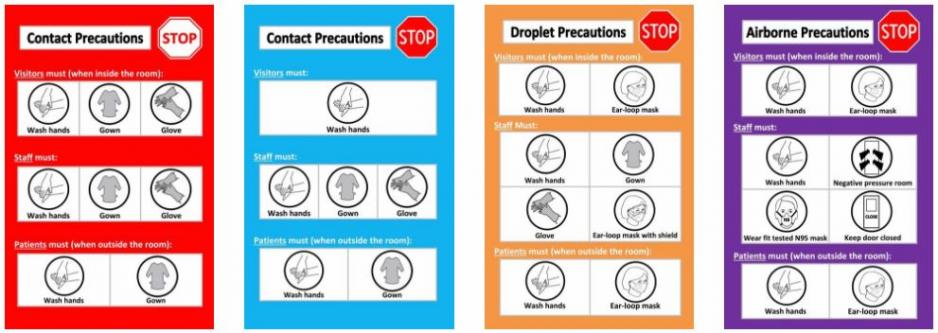Infection prevention and control practices are essential for maintaining a safe environment for patients and visitors. Our Infection Control Service ensures quality in infection control by:
- Surveying incidence and reducing the risk of preventable infections;
- Preventing infection transmission within MGH and the community for the well-being of patients, healthcare workers and visitors;
- Ensuring policies and procedures reflect the most current standards;
- Providing ongoing infection prevention and control education to hospital staff;
- Promptly responding to and managing outbreaks when they occur; and
- Fulfilling our role in a manner that demonstrates our core values of kindness, excellence and respect.
Good handwashing is the most important infection control practice.
HAND HYGIENE
Clean hands are essential in preventing the transmission of infections. By practicing good hand hygiene throughout MGH, we can ensure that we are not spreading disease.
- You should always wash your hands after using the toilet, after touching dirty surfaces, before preparing food and before eating.
- Use the alcohol-based hand rub that is provided in the hospital. Make sure you have enough product on your hands to ensure they remain wet for 15 seconds while you rub your hands together.
- If your hands are visibly soiled, lather using soap and water and spend at least 15 seconds washing your hands. Rinse your hands thoroughly and pat dry with a paper towel. Turn off the taps using the paper towel.
- Spend at least 15 seconds lathering and washing hands.
- Apply lotion several times throughout the day to help prevent dry, cracked skin.
Hand hygiene is the single most important way to prevent infections in healthcare settings like hospitals and clinics. That’s because 80% of all infectious diseases are transmitted by touch. In Canada, healthcare-associated infections affect more than 220,000 people every year, resulting in 8,000 to 10,000 deaths.
COVER YOUR COUGH
Respiratory infections, such as COVID-19 and influenza, spread easily by coughing and sneezing. Please wear a mask if you have a respiratory illness.
If you can, use your forearm to block your cough. If you cough into your hands, you must wash your hands immediately so your hands do not transmit germs to surfaces or people you may be in contact with.
ADDITIONAL PRECAUTIONS
Upon your admission or during your stay in the hospital, you may be identified by your doctor, nurse or infection control staff as having a condition or illness that requires additional precautions.
If this occurs, you will need to stay in your room but you may continue to have visitors. You, your visitors and your care providers will be required to follow instructions specified by your doctor, nurse and infection control staff.
Special signs will be posted on the doorframe outside your room with instructions for “All Persons Entering Your Room”.
If you have questions about your care while in additional precautions, ask your nurse and doctor. You can also ask to see a member of our Infection Prevention and Control Team.
additional precautions SIGNS YOU MAY SEE IN THE HOSPITAL:
RESEARCH and QUALITY IMPROVEMENT
Our Infection Prevention and Control Specialists contribute to knowledge in this sector by publishing papers in scientific and medical journals.
RESOURCES
For more information on Infection Prevention and Control, please browse the links below:


